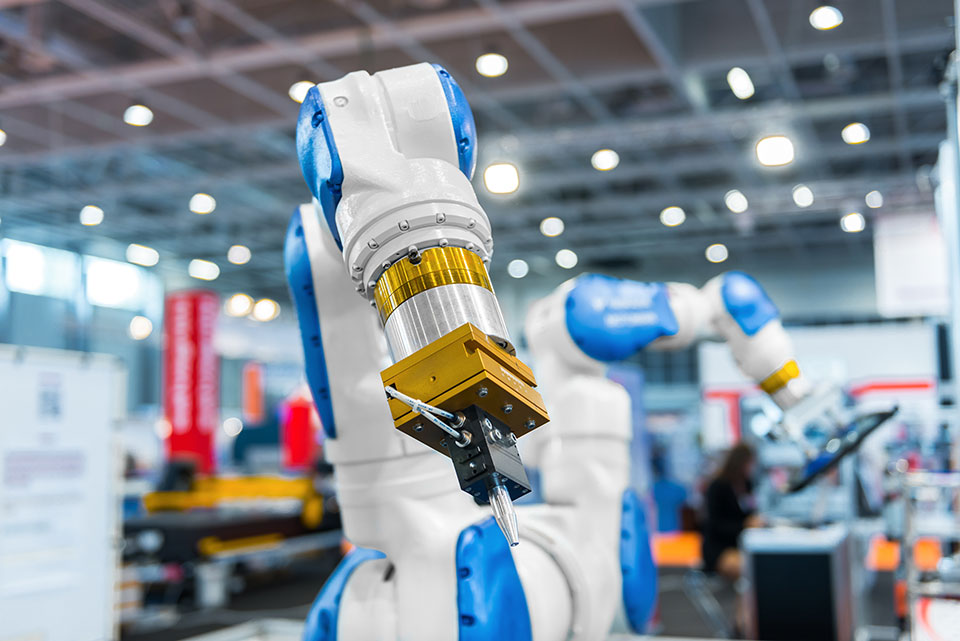Small Industrial Robots: What Factories Need To Know Before Purchasing Small Industrial Robots

Small industrial robots are integral tools for small manufacturers. With these robots, small manufacturers can easily compete with larger manufacturers in terms of quality and price. This is made possible by the enhanced production capacity and the improved quality of products made by these robots.
Unlike the large industrial robots, small industrial robots are affordable, and more small manufacturers are acquiring them to automate their factories. This is because they are affordable, compact, and inherently safe.
As small industrial robots become increasingly popular, manufacturers must understand a few things about them.
Manufacturers Need To Identify Robot Tasks Before Purchase
When the decision to acquire a small industrial robot is made, it should not be made to be like other factories. It should be made because there is a need for the robot. One of the major reasons why factories acquire small industrial robots is the lack of certain expertise in the production process.
Factories need to identify gaps that the robot will help to seal once it arrives at the factory. In this way, the factory can allocate its money toward the right robot for their needs. This also allows the company to get the right advice and tools from the robot integrators.
Manufacturers Need To Designate Robot Operators
Way before the robot arrives at the factory, the management should appoint the people they need to look after and operate the robot. This ensures that they get their training before the robot gets to the factory. This enables the company to get started on using the robot as soon as it gets to the factory.
Small industrial robots are easy to use, they don’t need specialized programming knowledge. A short training from the integrators allows any factory worker to become the designated robot operator.
Designate A Workspace For The Robot
Small industrial robots are compact and do not occupy much floor space. Further, they can be easily moved around the factory. One important factor that factories need to consider before the arrival of the robot is its designated workspace.
Most small industrial robots are collaborative robots. This means that they can work alongside human colleagues without the need for shielding as they are inherently safe. Their design and control programming enhance these safety features.
A workspace for the robots will be designated depending on the tasks they will carry out. If the robot is required to carry out tasks with hazardous materials, the factory may have to set it up farther away from the other workers.
If it is used in the production process, it can be set up anywhere along the production conveyor belt for example.
The Type Of Robot You Need
There are different types of small industrial robots available in the market. These robots can be differentiated easily based on their size, work location, reach and the products they can handle.
When buying a robot, factories must identify the types of robots available. Leading collaborative robot manufacturers such as Universal Robots have a variety of collaborative robots that suit different tasks and users.
Where To Reallocate Workers Whose Tasks Will Be Taken Over By Robots
When the robot is brought into a factory, it is allocated to dull, boring, and dangerous tasks. Before the robot came into the factory, these tasks had people allocated to them. Factories must consider reallocating those workers whose roles will be taken over by the robot to other tasks.
Tasks that will make better use of their skills and creativity that robots cannot possess. This should be considered before the robots get to the factory.
Conclusion: Small industrial robots have helped to transform many small manufacturing entities. With these, automation with robots is within reach for small manufacturers. They help to improve the quality and production capacity of factories. Thus enabling smaller companies to bring to the market high-quality products that attract more customers to them.
Add CEOWORLD magazine to your Google News feed.
Follow CEOWORLD magazine headlines on: Google News, LinkedIn, Twitter, and Facebook.
This report/news/ranking/statistics has been prepared only for general guidance on matters of interest and does not constitute professional advice. You should not act upon the information contained in this publication without obtaining specific professional advice. No representation or warranty (express or implied) is given as to the accuracy or completeness of the information contained in this publication, and, to the extent permitted by law, CEOWORLD magazine does not accept or assume any liability, responsibility or duty of care for any consequences of you or anyone else acting, or refraining to act, in reliance on the information contained in this publication or for any decision based on it.
Copyright 2024 The CEOWORLD magazine. All rights reserved. This material (and any extract from it) must not be copied, redistributed or placed on any website, without CEOWORLD magazine' prior written consent. For media queries, please contact: info@ceoworld.biz
SUBSCRIBE NEWSLETTER








